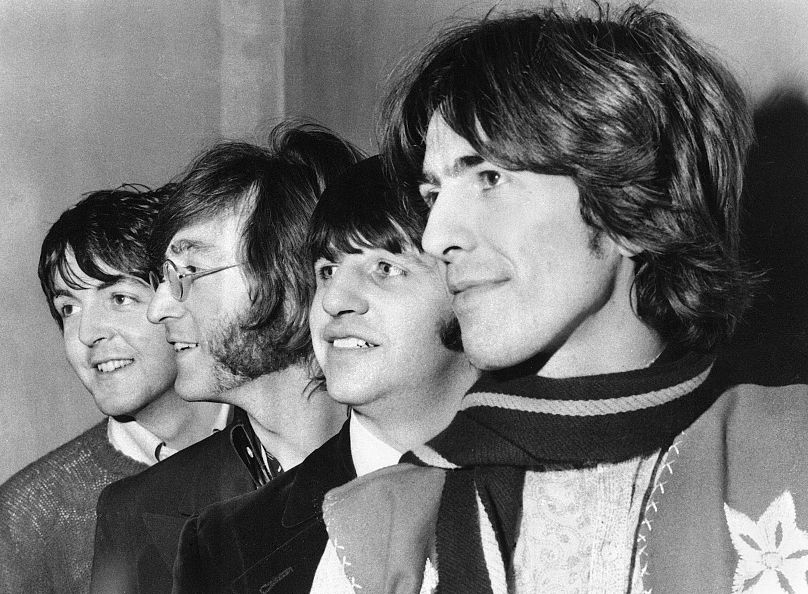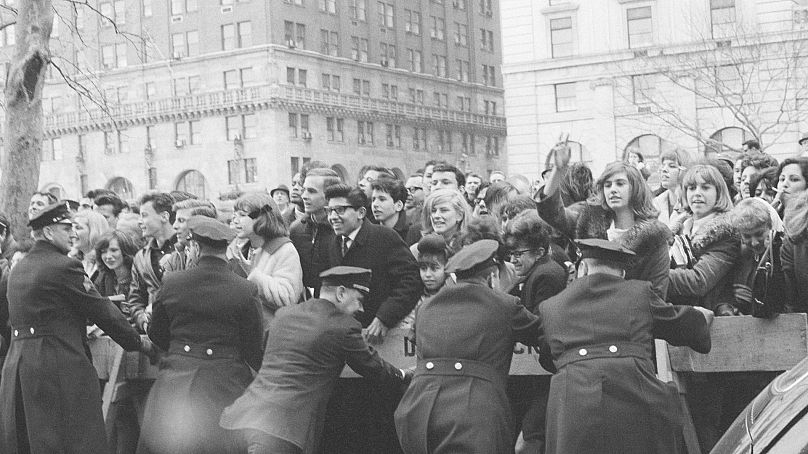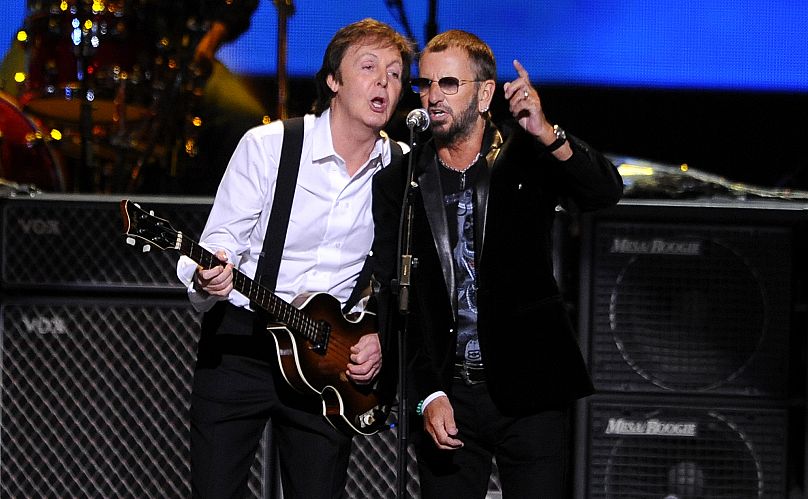Four years ago, 'Lord of The Rings' director and Beatlemaniac Peter Jackson was enlisted to look at the band's final years with fresh eyes. Here is what he found.
For 50 years, the fixed narrative had recording sessions for the Beatles' final album 'Let it Be' marked as miserable experience.
Fan mythology depicts a band where members were sick of each other and sick of their work.
The nearly 8-hour, Peter Jackson-produced documentary culled from film and recording outtakes of those sessions instead reveals that this is only partially true.
Jackson's new 'Get Back' series reveals a self-aware band with a rare connection and work ethic that still knew how to have fun.
Despite this, they were also very much in the process of breaking up.
Along the way, Jackson's project dispels and reinforces pieces of conventional wisdom that has solidified through the years.
It's the story of 'Let It Be' through new eyes that fans have been dying to unpick.
Here are some of Jackson's key findings.
A fresh take on the band's final years
Produced by a Beatlemaniac for fellow Beatlemaniacs, it can be an exhausting experience for those not in the club. But the club is pretty big – they are the biggest selling band of all time.
Beyond the treats it offers fans, 'Get Back' is a fly-on-the-wall look at the creative process of a band still popular a half-century after it ceased existence.
Jackson, the Academy Award-winning maker of the 'Lord of the Rings' series, was discussing another project with the Beatles when he inquired about what happened to all the outtakes of director Michael Lindsay-Hogg's 1970 'Let it Be' film.
Nearly 60 hours of film taken over three weeks existed, mostly unseen, and the band had been considering what to do with it. Jackson took that material, as well as 150 hours of audio recordings, and spent four years building a story.
He approached with the fear that it might be a depressing slog.
Lindsay-Hogg's film is viewed as a chronicle of the band's demise — unfairly, in Jackson's view — because it was released shortly after the break-up was announced.
Individual Beatles reinforced the notion with negative comments about the experience, where they had given themselves a tight deadline to write and record new material in preparation for a live show, with cameras following it all.
"I just waited for it to go bad," Jackson said. "I waited for the arguments to begin. I waited for the conflict to begin. I waited for the sense that they hated each other. I waited for all the things I had read in the books, and it never showed up."
A complex battle between musical conflict and brotherhood
Don't be mistaken – there's conflict. History overshadows the enjoyable moments revealed in the outtakes, like John Lennon singing 'Two of Us' as a Bob Dylan impersonator, or he and Paul McCartney challenging each other to a run-through without moving their lips. Jackson restores the balance.
"The connection was incredible," drummer Ringo Starr recalled in a recent interview.
"I'm an only child (but) I had three brothers."
The filmmaker is sensitive to the idea that he was brought in to "sanitise" the sessions, pointing out that 'Get Back' depicts George Harrison briefly leaving the band, an event Lindsay-Hogg was not permitted to show.
That moment unfolded after a morning where Harrison watched, silently stewing, as Lennon and McCartney displayed their tight creative connection working on 'Two of Us' as if the others weren't there. When a lunch break came, Harrison had something more permanent in mind.
"I'm leaving the band now," he says, almost matter-of-factly, before walking out.
Which begs the question – if this discovery was allowed to make 2021s cut, what else was?
Myth No. 1: McCartney was a control freak
Verdict: Partly true.
The film shows Harrison visibly chafing at McCartney giving him and other band members instructions on how to play and cajoling them into a decision on a live concert. The band had been somewhat aimless since the 1967 death of manager Brian Epstein. McCartney had taken on the "daddy" role, and isn't entirely comfortable with it.
"I'm scared of me being the boss, and I have been for a couple of years," he says. "I don't get any support."
Myth No. 2: Yoko Ono broke up the Beatles
Verdict: Not true. She's there at virtually every recording session, but mostly as a benign force sitting next to Lennon.
The other Beatle spouses all show up in the studio, although not as often. At one point, McCartney even makes a prescient joke about her.
"It's going to be such an incredible comical thing in 50 years time — they broke up because Yoko sat on an amp," he says.
The afternoon after Harrison left, the remaining Beatles clearly take out their frustration with some aggressive, atonal music, and Ono takes over his microphone — a spellbinding moment.
Myth No. 3: The Beatles had essentially turned into four solo artists by 1970
Verdict: Not true.
They're constantly collaborating, seeking and taking advice. At one point, Harrison confesses to Lennon that he's been having trouble completing the line that became "attracts me like no other lover" in 'Something'.
Lennon suggests using a nonsense phrase — "attracts me like a cauliflower" — until something better emerges.
Through the film, viewers can see how the song 'Get Back' emerged from McCartney working out a riff on the side, to he and Lennon trading lyrical suggestions and throwing out an idea to make it a song criticizing anti-immigrant sentiment, to the full band working out the arrangement.
Pleased with the final result, it's Harrison who suggests immediately releasing it as a single.
"A glimpse of them working together is an enormously important artifact, not just for Beatles fans but for anybody who is creative," said Bob Spitz, author of "The Beatles: The Biography," published in 2005.
Myth No. 4: Filming showed the Beatles breaking up
Verdict: Essentially true.
It becomes clear that Lennon and Harrison's enthusiasm for being Beatles is waning. Lennon is clearly in love with Ono; McCartney tells Harrison and Starr that if it ever came down to a choice between her and the Beatles, Lennon would go with her.
Harrison, growing creatively, is becoming uncomfortable with his secondary role. He talks with Lennon about doing a solo album because he has enough songs written to fill his "quota" on Beatles albums for another decade.
As if to prove his point, the Beatles rehearse Harrison's majestic 'All Things Must Pass,' but decline to record it.
In the film, Lennon and Starr also discuss a meeting with Rolling Stones manager Allen Klein about taking over the Beatles' business, foreshadowing a bitter split with McCartney.
"The whole thing is full of mini-stories," Jackson said.
Were the last living Beatles happy with the final product?
Jackson, who had been expected to make a conventional documentary, said he was nervous taking his much longer final product back to McCartney, Starr and the families of Lennon and Harrison.
"But they came back and said, 'great, don't change a thing,'" he said.
Among the priceless moments he unearthed is the joy on the Beatles' faces as they played on the studio rooftop. The film shows the whole performance, the band rising to the challenge and having a great time doing it.
When the police finally end it, the band and entourage retreat to the studio and listen to a recording of what they've done.
"This is a very good dry run for something else," says band producer George Martin.
That, alas, was not to be.
The Beatles: Get Back will be released on Disney+ in three parts from November 25-27.














